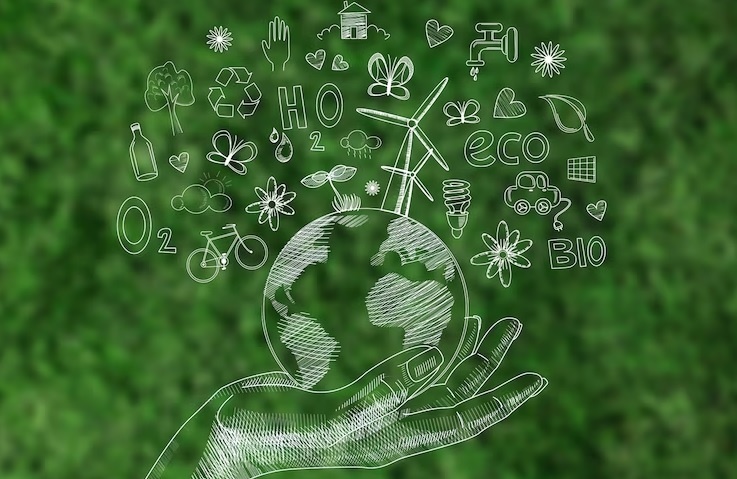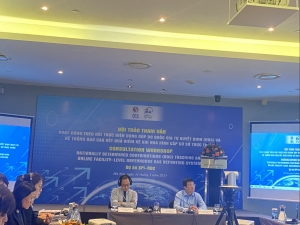INTERNATIONAL INVESTMENT
AND PORTAL
I recently met a businessman at a networking event who introduced himself as a procurement professional. Part of his job entails linking international companies with manufacturers based in Vietnam. Not long ago, he received a request from a client, connected them to a local supplier, and even provided samples for their perusal.
However, before the transaction would be finalised, the client demanded to see evidence of how the manufacturer based in Vietnam adopted responsible corporate practices, particularly in the treatment of its employees and their working conditions. I asked him about the size of the two companies and to my surprise, he indicated both companies were small- and medium- sized enterprises (SMEs).
 Sustainability reporting in Vietnam: why it matters (illustration photo/ Source: freepik.com)
Sustainability reporting in Vietnam: why it matters (illustration photo/ Source: freepik.com)
Years ago, few businesses cared about how suppliers treated their workers, let alone based their transactions on such matters. It used to be the big and multinational companies that embraced the idea because of their global presence, stakeholder obligations, and brand promotion objectives. But here we are, SMEs are also considering the working conditions of employees of prospective suppliers before placing orders.
 Dr. Samuel Buertey - Accounting lecturer, Business School, RMIT Vietnam
Dr. Samuel Buertey - Accounting lecturer, Business School, RMIT Vietnam
More than ever before, there is much expectation for companies to demonstrate their commitment to sustainable business practices. Stakeholders are interested in the impact of companies on the economy, environment, and society. Such societal expectations were once only known in advanced countries. Things have changed.
Even though local expectations in developing countries may be low, the demand for sustainable business practices has moved beyond national borders. External forces also push local companies towards such practices, especially in countries where companies are exposed to international markets. And this is where many emerging economies, such as Vietnam, find themselves.
Vietnam has gradually positioned itself as a manufacturing and business process outsourcing location for many global brands, and the 2021 Kearney Global Service Location Index ranked Vietnam as the sixth viable offshore destination out of 60 countries.
While factors such as cost, skilled labour force, and stable economy are central attraction points for the growth in Vietnam’s business process outsourcing, recent data shows that many more companies are factoring in the planet when it comes to outsourcing decisions.
Thus, most companies looking to improve their business process with outsourcing are also keen on being as sustainable as possible. Companies do this by ensuring that they work with a supplier who cares as much as they do to transform our world for the better.
In a 2020 Harvard Business Review article, the authors indicated a growing number of global groups would be pledging to work only with suppliers that commit to social and environmental standards. This forms part of their wider sustainable supply chain management efforts that seeks to cascade sustainable practices throughout the organisation-wide supply network.
Research from Ernst & Young in 2022 found that eight out of 10 supply chain leaders are committing to sustainable supply chain operations, focusing on, among other things, ethical sourcing as part of their larger sustainability goals.
Companies can demonstrate their commitment to sustainable development goals through reporting.
Sustainability reporting is the disclosure and communication of environmental, social and governance goals as well as the progress towards them. Such reporting should not only be seen as the reserve of big public companies and multinationals. Any company that genuinely prioritises sustainability must have little problem producing a list of its sustainable goals and how it is working towards them.
There are certainly some notable efforts by a number of companies currently producing sustainability reports in Vietnam. However, there are too few, and they are generally large publicly-listed companies. According to the State Securities Commission of Vietnam, only 19 public companies issued a separate sustainability report in 2022.
Considering the current global trend where many companies are committing to sustainable supply chain management through outsourcing, it is expected that many more companies in Vietnam will not only embrace sustainable business practices but will put in place measures to document and report on such to remain attractive in the international business process outsourcing industry.
 Sustainability reports still underutilised
Sustainability reports still underutilised
Besides annual reports, sustainability reports are increasingly creating competitive advantages and attracting investor attention. However, only a few listed companies in Vietnam have issues such a report, with most only at acceptable quality.
 Vietnam operates greenhouse gas reporting system online
Vietnam operates greenhouse gas reporting system online
A reporting system for facilities to upload their greenhouse gas (GHG) emissions data online has been completed, and will be updated when the Ministry of Industry and Trade, the Ministry of Construction, and the Ministry of Transport issue detailed guidance for their respective areas, according to a recent consultation meeting.
By Dr. Samuel Buertey



















